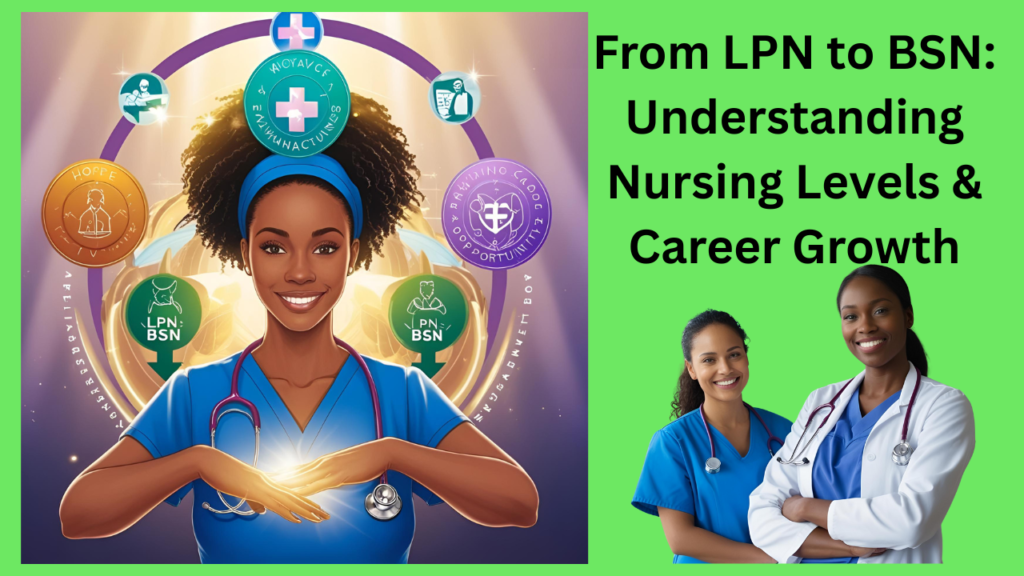Become an Expert Nurse: The Top Benefits of Advanced Certifications
The Importance of Specializing in Nursing in Today’s Healthcare
In today’s fast-changing medical field, advanced certifications for nurses are more than simply career goals; they are necessary to stay current, respected, and in demand. Nurses who specialize gain additional knowledge and skills that improve patient outcomes, make clinical teams stronger, and lead to better-paying and more fulfilling jobs.

More money possible with higher-level certifications
Certified nurses always make more money than nurses who aren’t certified. Specialties like critical care (CCRN), oncology (OCN), or nurse practitioner (NP) pay a lot more. Employers like that credentialed professionals offer advanced clinical reasoning and the most up-to-date best practices to the bedside.
The American Association of Critical-Care Nurses (AACN) says that nurses with specialty credentials can make up to 20% more than nurses without them. It’s not just about the money; it’s also about showing that you have more skills, are responsible, and can lead.
More chances for career growth and leadership
Nurses with advanced credentials are frequently the first people to be considered for promotions, team leadership, and management positions. Specialization shows that a nurse is dedicated to doing a great job and learning new things for the rest of their life, which makes them perfect for
Jobs as a Charge Nurse
CNLs (Clinical Nurse Leaders)
Nurse Teachers
Advanced Practice Registered Nurses (APRNs)
Specialty certification gives you the credentials you need to stand out in a crowded job market and be considered for top healthcare jobs.
Better Outcomes for Patients and More Trust Studies demonstrate that hospitals with more certified nurses have better outcomes for their patients, such as reduced infection rates, fewer medical errors, and happier patients. Patients are more likely to trust nurses who have qualifications that are easy to see and well-known.
Nurses can make quicker, more accurate judgments that save lives by becoming experts in a certain field, like wound care or pediatric critical care. When someone shows that they know what they’re talking about, trust grows. An advanced certification is the best way to show that.
Job Security and Being Able to Work in Other Countries
In a healthcare system where job security is important, trained nurses are less likely to lose their jobs during layoffs or changes in the economy. Employers are less likely to fire qualified workers who have specialized knowledge and advanced abilities.
Furthermore, many health systems around the world, such as those in the U.S., UK, Canada, Australia, and Germany, require or give priority to specialist certificates for nurses who were trained in another country. Advanced certificates make your job application more competitive around the world and raise your chances of getting a visa.
More self-assurance and a sense of professional identity
Getting a certification is more than simply a technical process; it’s a life-changing experience. Nurses who get postgraduate degrees generally say they are more confident, happy with their jobs, and proud of their work. They don’t simply regard themselves as caregivers; they also see themselves as specialists and experts in their professions.
With certificates, nurses may advocate, coach, and lead by example, which helps them feel like they belong in the nursing field.
Non-Clinical Nursing Roles: What You Can Do
Advanced certificates don’t just cover bedside care. They also make it possible to:
Managing Cases
Nursing in Forensics
Consulting for Legal Nurses
Nurse Information
Roles in Public Health and Policy
As healthcare organizations move toward preventive care, remote care, and data-driven strategies, nurses with unique talents will be in charge.

The Most In-Demand Certifications in 2025 and Beyond
| Certification | Specialization Area | Benefits |
|---|---|---|
| CCRN | Critical Care | ICU and ER positions, higher salaries |
| FNP | Family Nurse Practitioner | Independent practice authority |
| CNOR | Perioperative Nursing | High demand in surgical units |
| CEN | Emergency Nursing | Frontline trauma and ER readiness |
| CHPN | Hospice & Palliative Care | Rising demand due to aging population |
| PMHNP | Psychiatric Mental Health | Huge mental health care gap |
| CWOCN | Wound, Ostomy, Continence | Niche and critical for post-op care |
How to Pick the Right Certification
The proper path relies on
Your medical interests Are you interested in pediatrics, the ICU, or geriatrics?
Goals for your career (Do you want to be a leader? A teacher? Work throughout the world?
Time and money (Some certificates need formal training or degrees)
Accreditation (Make sure that the credentialing organization is known around the world or in the US.)
The American Nurses Credentialing Center (ANCC) and the Board of Certification for Emergency Nursing (BCEN) are two examples of organizations that give out highly valued certifications.
How to Get Ready for Your Certification
Become a member of a study group or a professional group.
Take practice tests and review courses online
Make a study regimen that works around your work hours.
Stay up to date on the latest rules and practices based on evidence.
Get help from certified specialists by networking with them.
Getting certified is a step toward advanced practice.
For registered nurses (RNs) who want to become nurse practitioners (NPs), clinical nurse specialists (CNSs), or nurse anesthetists (CRNAs), certificates are a basic building block. They meet the standards for graduate programs and help you construct outstanding academic and clinical portfolios.
Employers who support certification
Many hospitals and health systems now:
Pay back the costs of tests and training
Give bonuses for getting certified as an incentive.
Give people continuing education units (CEUs) on site
If you have any uncertainties, please feel free to consult your employer’s HR or professional development department. You might be closer to getting certified than you realize.
In Conclusion
Nursing is no longer just a career in 2025; it’s a purposeful, specialized field. As healthcare becomes more complicated, the necessity for highly trained nurses with advanced credentials develops. Certification is the first step toward moving forward in your current job or taking your career to the next level.
Questions that are often asked
Q1. What are the benefits of nurses getting advanced certifications?
A: Advanced certificates let nurses focus on a certain area of care, make more money, improve patient outcomes, and get ready for leadership or advanced practice responsibilities. Getting certified shows that you are really dedicated to strengthening your nursing skills and becoming a better nurse.
Q2. What are the most useful nursing certifications in 2025?
A: Here are some of the most popular certifications:
CCRN stands for Critical Care Registered Nurse.
Family Nurse Practitioner (FNP)
PMHNP stands for Psychiatric-Mental Health Nurse Practitioner.
CEN (Certified Emergency Nurse)
CNOR, which stands for “Certified Perioperative Nurse,”
These certificates are in high-demand fields and can greatly boost your chances of getting a job.
Q3: How long does it take to get a nursing specialty certification?
A: It depends on the certification. Some certifications, like NP or CNS, may only need a few months of study and clinical practice hours, while others may need a full graduate degree over two to three years. Each certification authority has its set of rules and deadlines for who can get certified.
Q4: Would it be possible to get certified while working as a nurse full-time?
A: Yes, many nurses get certified while they are working. It’s possible to reconcile employment with professional growth with flexible online courses, weekend workshops, and study aids that let you set your pace.
Q5: Do nurses with advanced certificates make more money?
A: Yes. Certified nurses usually make 10% to 20% more than nurses who aren’t certified. Some companies also give incentives, increases, or promotions to people who are certified.
Q6. Will having a certification help me get a job as a nurse in another country?
A: Yes, for sure. Countries including the US, UK, Canada, and Australia give preference to applicants who have specialty certificates. It indicates that you are ready to work under international standards and that you are excellent at what you do.
Q7. Do you need to be certified to work as a nurse practitioner or clinical nurse specialist?
A: Yes, most advanced practice jobs demand both a graduate degree and a national certification in your field of expertise. Getting certified is usually the last step in proving that you are qualified to work on your own or write prescriptions.
Q8. Which groups give out approved nursing certifications?
A: Some of the most important certifying bodies are:
ANCC, which stands for the American Nurses Credentialing Center
AACN stands for the American Association of Critical-Care Nurses.
NBCRNA stands for the National Board of Certification and Recertification for Nurse Anesthetists.
BCEN stands for the Board of Certification for Emergency Nursing.
WOCN Society (Wound, Ostomy, and Continence Nursing Certification Board)
Q9. How do I pick the correct certification for my career goals?
A: To begin, figure out what you like, what you are good at in the clinic, and what your long-term goals are. Find out how much demand there is for jobs in your area or the area you want to work in. Before making a choice, talk to mentors, examine job descriptions, and think about how much time and money you can afford.
Q10: Are certifications permanent, or can they be renewed?
A: Most certificates are valid for a certain amount of time (typically 3 to 5 years) and need to be renewed by getting more school credits, clinical hours, or taking a recertification exam. Keeping your certification up to date indicates that you are still skilled and dedicated to doing a good job.

